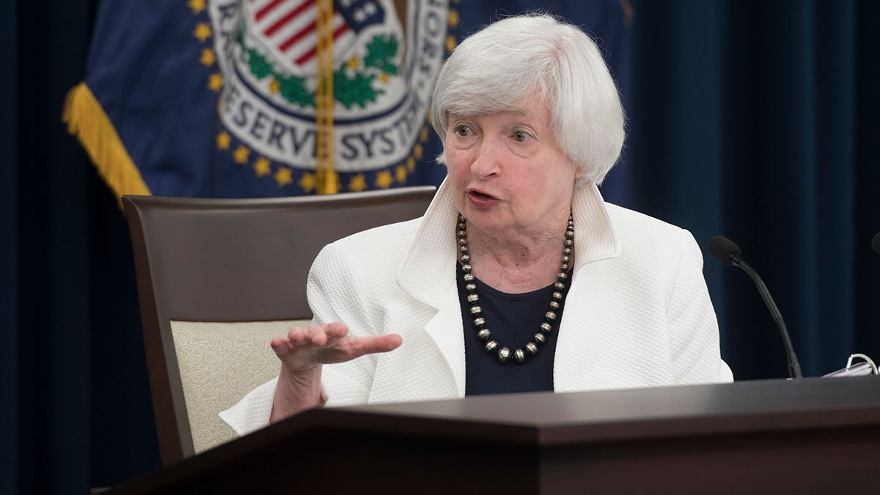Fed maintains course during latest monetary policy action

Federal Reserve chair Janet Yellen responds to a question during a press conference on Wednesday in Washington, D.C. Photo courtesy of the Federal Reserve.
By subscribing, you agree to receive communications from Auto Remarketing and our partners in accordance with our Privacy Policy. We may share your information with select partners and sponsors who may contact you about their products and services. You may unsubscribe at any time.
WASHINGTON, D.C. –
Because of the Federal Reserve’s view of realized and expected labor market conditions and inflation, a unanimous vote of the Federal Open Market Committee decided to maintain the target range for the federal funds rate at 1 percent to 1.25 percent, according to an announcement policymakers made on Wednesday.
Fed chair Janet Yellen explained the stance of monetary policy remains accommodative, thereby supporting some further strengthening in labor market conditions and a sustained return to 2-percent inflation.
“Although the committee decided at this meeting to maintain its target for the federal funds rate, we continue to expect that the ongoing strength of the economy will warrant gradual increases in that rate to sustain a healthy labor market and stabilize inflation around our 2-percent longer run objective,” Yellen said during the opening statement of one of her regularly scheduled press conference following a rate decision.
“That expectation is based on our view that the federal funds rate remains somewhat below its neutral level — that is, the level that is neither expansionary nor contractionary and keeps the economy operating on an even keel,” she continued.
“Because the neutral rate currently appears to be quite low by historical standards, the federal funds rate would not have to rise much further to get to a neutral policy stance,” Yellen went on to say. “But because we also expect the neutral level of the federal funds rate to rise somewhat over time, additional gradual rate hikes are likely to be appropriate over the next few years to sustain the economic expansion.
“Even so, the committee continues to anticipate that the longer-run neutral level of the federal funds rate is likely to remain below levels that prevailed in previous decades,” he added.
Subscribe to Auto Remarketing to stay informed and stay ahead.
By subscribing, you agree to receive communications from Auto Remarketing and our partners in accordance with our Privacy Policy. We may share your information with select partners and sponsors who may contact you about their products and services. You may unsubscribe at any time.
Yellen also shared that the Fed expects that the overall U.S. economy will continue to expand at a moderate pace over the next few years.
“In the third quarter, however, economic growth will be held down by the severe disruptions caused by Hurricanes Harvey, Irma and Maria,” Yellen said. “As activity resumes and rebuilding gets underway, growth likely will bounce back. Based on past experience, these effects are unlikely to materially alter the course of the national economy beyond the next couple of quarters.
“Of course, for the families and communities that have been devastated by the storms, recovery will take time, and on behalf of the Federal Reserve, let me express our sympathy for all those who have suffered losses,” she added during the event that can be seen in its entirety here or at the top of this page.
The majority of what the Fed and Yellen divulged on Wednesday didn’t surprise Comerica Bank chief economist Robert Dye, who assessed how the makeup of who is making future policies could leave an impact.
“Looking ahead, it is important to remember that there is potential for a very different Board of Governors next year after Janet Yellen’s term expires this coming February,” Dye said. “She may yet get reappointed by President Trump, but that is by no means assured.
“Yellen reinforced that the Fed was not locked into any particular policy action and would continue to digest data and adjust monetary policy accordingly,” Dye continued. “She remained noncommittal about the likelihood of her reappointment as chairwoman of the FOMC. However, she did admit that she has not had a recent meeting with President Trump.”


